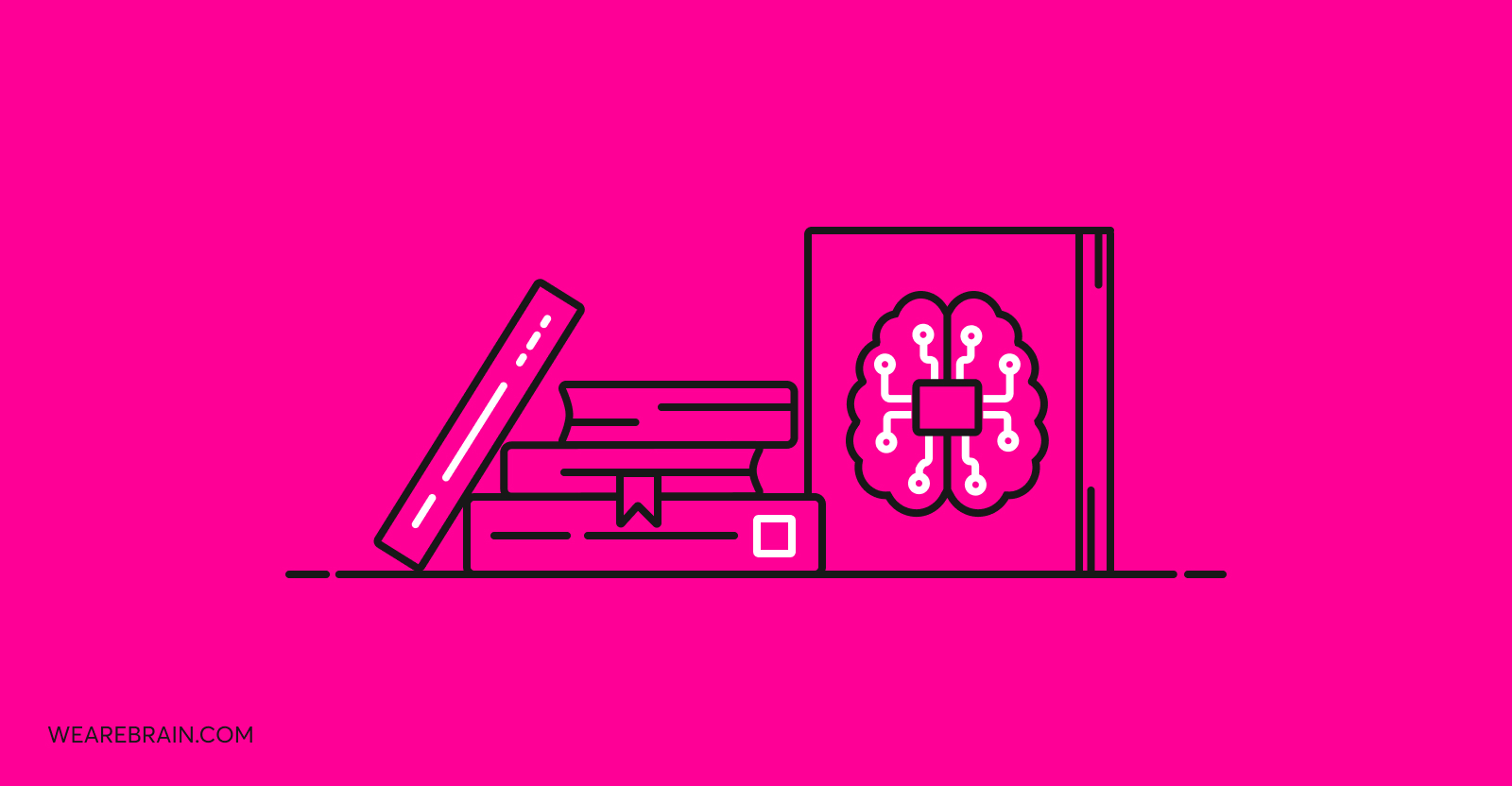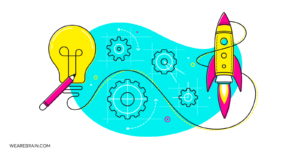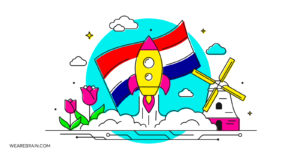Our favourite 5 books on AI and Automation

Dive into the future of AI and intelligent automation with our top book recommendations, exploring the profound impact on business, society, and human development.
Key takeaways
- “Intelligent Automation:” Highlights efficiency gains and societal benefits from hyperautomation, backed by insights from over 200 AI experts.
- “Life 3.0:” Max Tegmark examines the future of human life amidst AI advancements, presenting scenarios of AI integration and its ethical implications.
- “Working Machines:” Offers a practical guide for business leaders on implementing AI and intelligent automation, emphasizing ethics and no-collar workforce integration.
- “Prediction Machines:” Analyzes AI through the lens of economics, advocating for strategic AI implementation in businesses and thoughtful policy design by governments.
- “The Sentient Machine:” Amir Husain presents an optimistic view on AI’s potential to revolutionize human development and solve complex societal issues.
- Honourable Mentions: Features groundbreaking works by female authors in AI, including “Girl Decoded” by Rana el Kaliouby and “Principles of Quantum Artificial Intelligence” by Andreas Wichert, highlighting diversity and innovation in the field.
Book club, AI edition
Welcome to another edition of the WeAreBrain book club. This time around we’re going to take a look at the best books on Artificial Intelligence and automation for business leaders. We’ve also taken a look at some of the books that predict the way the global economy will be affected by AI’s evolution as well as what AI means for human development and growth. So strap in and let’s see what the wonderful world of AI literature has to offer.
1. Intelligent automation: Welcome to the World of Hyperautomation
This book, authored by Ian Barkin, Jochen Wirtz and Pascal Bornet is being touted as one of the most important books on AI and automation that has yet to hit the bookshelves. The key content in the book takes the reader through the basics, but the true value is their explanation of how companies that are leading the charge in Intelligent Automation have already seen efficiency gains of between 20 and 60%.
The authors also take a look at IA’s potential to save lives, increase educational budgets and increase societal resilience during pandemics or similar crises. It certainly couldn’t have come at a better time. When you delve into the content from this book, know that you are learning not just from the authors but also from more than 200 AI experts who collaborated with them to bring their lessons and learning to print.
2. Life 3.0: Being Human in the Age of Artificial Intelligence
This book, written by Max Tegmark, has been heralded as one of the most important books of our time by the likes of Stephen Hawkings. The book begins in the future (not too far distant), in a scenario where AI has exceeded human intelligence and has become so pervasive in society it becomes almost impossible to exist without the use of it in some way.
Tegmark determines that human life at its inception was Life 1.0. Our cultural and societal development is Life 2.0. with the prevalence of technology and AI advances, he posits that we are in the process of Life 3.0 and he looks into what this means for the future of the human race. He introduces possible scenarios where both Friendly AI and Apocalypse AI play a role in the future development of humans and the way we live and work. In it, Tegmark argues that the risks of AI do not come from conscious malevolence by the technology but rather a potential misalignment of the goals of AI with those of human beings. A thought-provoking read indeed.
3. Working Machines: An executive’s guide to AI and Intelligent Automation
Our list of good reads on AI would not be complete if we didn’t throw our own hat into the ring. Authors, Paula Ferrai, Mario Grunitz and Samantha Wolhuter take a very practical approach to develop and introducing intelligent automation into your business. It’s an easy read aimed at business owners, C-level executives and decision-makers.
After a thorough look at how AI is currently influencing and changing several industries, the authors look at the ethics of AI development and how we should be monitoring the lightning-paced technological development of AI. The book ends with a full set of tools and strategies that business leaders can begin to work with and implement themselves so that they’re properly equipped to introduce their new no-collar workforce to their human counterparts. We’re also proud to be the first entry on this list with two female authors writing on the topic of AI.
4. Prediction Machines: The Simple Economics of Artificial Intelligence
In this book, authors Ajay Agrawal, Joshua Gans and Avi Goldfarb, zoom out to look at AI on a global scale investigating how companies should create their AI strategies, and how governments should go about designing policies that protect the individual. All well-known economists, this group of authors bring a new dynamic to an already controversial topic, living and working with AI. Utilising basic tools from economics they provide clarity around the AI revolution through an entirely different lens.
For centuries, human beings have been using predictive models to work out everything from what the weather is likely to be or how much income a business projects it will earn during any given year. When considered from this perspective AI is simply a more advanced and efficient predictive tool that will ultimately help us plan better going into the future. This type of logic makes implementing your own AI strategy in your business just make sense.
5. The Sentient Machine: The Coming Age of Artificial Intelligence
Author and well-known inventor Amir Husain takes a very optimistic stance on the future of human/AI interaction. His belief is that AI is the human race’s single greatest creation bringing with it the dawn of a new form of intellectual diversity. With this kind of sentiment Husain argues this position is not based on what is right or wrong about AI technology but rather, he approaches the topic by looking at the inherent risks and real potential AI has for human development in the future.
It’s a fascinating read and through clear and real-world relatable examples Husain has managed to call into question some of the things we believe to be good and of benefit in today’s society. He then presents a case for how AI could fix some of the problems we didn’t even know we had. If you’re ready to ask yourself existential questions about the value that human beings as a collective hold in an AI world then this one is for you.
Honourable Mentions
As a very honourable mention when it comes to female authors in the AI space, it is well worth reading Girl decoded. An autobiographical look at Rana el Kaliouby’s journey from an Egyptian girl growing up in both Egypt and Kuwait where the AI industry continues to be overwhelmingly male, to becoming a scientist pioneering artificial emotional intelligence. The autobiography is a collaboration with Carol Colman, who is a New York Times bestselling author.
Then finally if you’re looking to really geek out on AI and its potential look no further than the Principles of Quantum Artificial Intelligence by Andreas Wichert. The book will introduce you to the complex world of quantum computing and how it can be applied to AI. Wichert expertly highlights problem-solving and knowledge representation frameworks that can and should be used when the two technologies combine.
Mario Grunitz
Working Machines
An executive’s guide to AI and Intelligent Automation. Working Machines takes a look at how the renewed vigour for the development of Artificial Intelligence and Intelligent Automation technology has begun to change how businesses operate.







